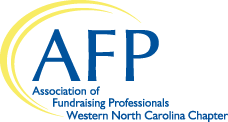The disaster caused by Hurricane Helene can make it challenging to fundraise for your institution. At this time, you are likely figuring out how to reconcile your desire to help with the need to fund your organization and its mission. Your mission is still valid and important to the community, but depending on where you sit in the larger relief effort, it may take a back seat temporarily to other priorities. If you have paused fundraising and prioritized your supporters’ well-being, you’ve taken an important step in building trust and empathy with your donors, and you are laying a foundation for future support.
Engage Donors Sensitively
Adapt your messaging and fundraising appeals to reflect the current situation. Avoid using language that might trigger negative emotions or minimize the severity of the disaster. Here are some examples:
“Devastation from Hurricane Helene is having a real and tangible impact on our fundraising mission, but challenging times remind us how grateful we are for our supporters and all you do to make our work possible.”
“Join us in saying thank you to our team for their commitment and tireless efforts to keep our organization’s mission moving forward during these challenging times.”
“We are hard at work to keep our community healthy during this unprecedented time. We welcome your support with an online donation.”
“We’re proud of the way our team members, partners, donors, and community members are working together in this time of need. People are stepping up and showing up to help.”
“When you can, please consider continuing your financial support of our important work. The best way to do so while our events and other activities are on hold is through an online gift.”
Understand Donor Sentiment
- Recognize that many donors may still be recovering from the storm’s devastation. Their immediate focus might be on personal needs and rebuilding their lives.
- While immediate relief efforts are crucial, highlight your organization’s relevancy and connection to the community. Emphasize your worth and how your organization strengthens the fabric of your community, as well as what your long-term needs are.
- If you are involved with relief initiatives, focus on your community’s ongoing needs, such as rebuilding infrastructure, providing mental health support, and supporting long-term recovery.
- Offer multiple donation methods, such as one-time gifts, recurring donations, and in-kind donations. This allows donors to choose the option that best suits their circumstances.
Share Impact Stories
- Highlight the positive outcomes of your fundraising efforts.
- Share stories of individuals or organizations that have benefited from donor support. This can inspire continued generosity.
- Share stories of staff or volunteers who have overcome challenges or have made a special effort to assist your organization during the crisis.
- Share stories of hope, resilience, and the community’s ability to overcome adversity.
Be Transparent
- Maintain open communication with donors. Provide regular updates on how funds are being used and the progress made in recovery efforts. Transparency builds trust and encourages ongoing support. While you may pause or adjust your fundraising efforts, do not stop communicating with your donors.
- Leverage social media platforms to share updates, engage with donors, and create a sense of community.
- Reach out by phone or text to check on the welfare of your donors.
- Send videos to your donors offering your support and gratitude.
Build Community and Resilience
- When you are able, host events that bring people together and foster a sense of community. This can include volunteer opportunities, fundraisers, or simply gatherings for support and connection.
- Collaborate with other local organizations to maximize your impact and reach a wider audience. By working together, you can create a stronger network of support.
- Focus on hope and resilience by emphasizing the positive aspects of the recovery process.
- Be human. Be empathetic. Be full of care. And, carefully, you can still make an ask.
Remember – your cause was, and still is, worthy of funding.
Sincerely,

Doug Hartjes, CFRE
Co-Vice President, Programs
AFP WNC

